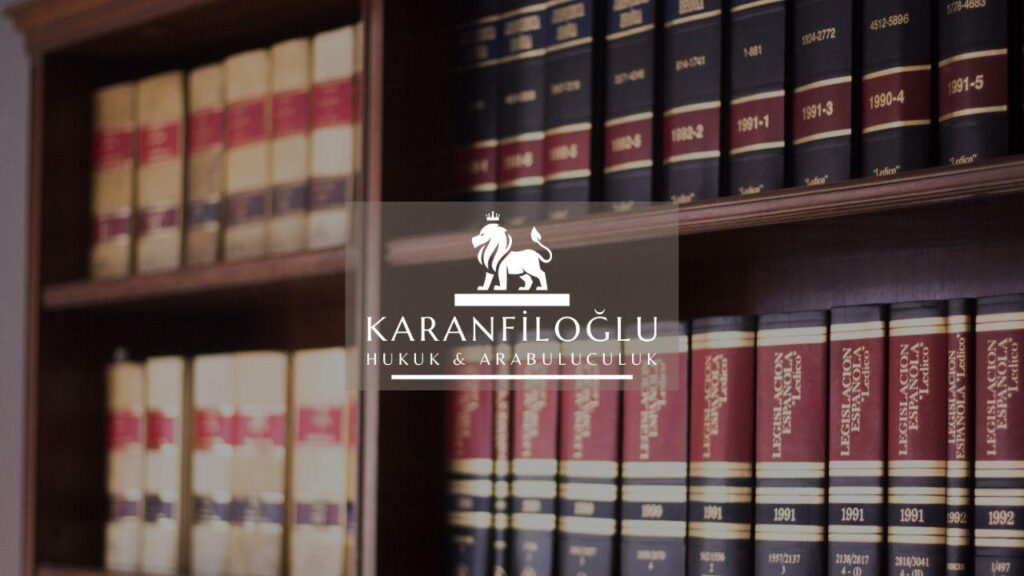Navigating the complexities of water rights in Turkey requires understanding a multitude of legal provisions and regulatory frameworks. Turkish water rights are primarily governed by the Constitution of the Republic of Turkey, the Civil Code, and the Law on Ground Waters (Law No. 167). Article 168 of the Turkish Constitution gives the state the authority to regulate and manage water resources, while the Civil Code delineates property rights and usage permissions. Additionally, the Law on Ground Waters specifies the procedures for the allocation and use of underground water resources, as well as licensing requirements. At Karanfiloglu Law Office, our experienced legal team is well-versed in these intricate regulations and is committed to providing comprehensive legal support to ensure our clients’ interests are protected in all matters concerning water rights.
Legal Framework Governing Water Rights in Turkey
The legal framework governing water rights in Turkey is shaped by various regulations, with the Constitution of the Republic of Turkey at its core. Article 168 of the Turkish Constitution empowers the state to control and allocate natural resources, including water, ensuring they are used in the broader public interest. Complementing this is the Turkish Civil Code, which regulates property rights and provides guidelines on who holds the rights to utilize water resources found on private or public land. Specifically, Article 718 and following articles of the Civil Code address the principles of water usage and ownership, clarifying the extent of individual and communal rights. Furthermore, the Law on Ground Waters (Law No. 167) provides detailed regulations concerning the use of underground water resources, stipulating mandatory licensing and usage conditions to prevent over-extraction and ensure sustainable management. Together, these laws form a comprehensive regulatory framework that ensures the equitable distribution and responsible use of Turkey’s valuable water resources.
In addition to these foundational laws, environmental sustainability and public health significantly influence Turkish water rights regulations. The Law on Environmental Protection (Law No. 2872) mandates rigorous standards for water quality and pollution control, ensuring that water resources are safeguarded against contamination. Article 8 of this law specifically prohibits the discharge of harmful substances into water bodies, imposing strict penalties on violators. Moreover, the Public Health Law (Law No. 1593) outlines necessary measures to prevent waterborne diseases and safeguard public health, including the regulation of potable water standards and sanitary requirements. The integration of these environmental and health measures into water rights legislation underscores the Turkish government’s commitment to maintaining a balance between resource utilization and environmental protection. At Karanfiloglu Law Office, we understand the critical intersections between these regulations and are dedicated to navigating these complexities to ensure our clients’ compliance and protection.
Navigating the intricate web of Turkish water rights laws also involves understanding the administrative processes governing water use. The Ministry of Agriculture and Forestry, alongside the State Hydraulic Works (DSİ), plays a pivotal role in the issuance of permits and licenses required for water extraction and usage. According to the By-Law on Water Usage (issued under the Law on Ground Waters), individuals and entities must undergo a rigorous application process to obtain necessary permits, which includes demonstrating that their water use will not negatively impact existing water rights or environmental quality. Article 23 of the Law on Ground Waters (Law No. 167) stipulates that unauthorized extraction or deviation of water is subject to stringent penalties, including fines and potential revocation of water rights. At Karanfiloglu Law Office, we offer expert legal guidance through every step of this process, helping clients secure the requisite permits and ensure their water usage practices comply with all relevant regulations.
Key Challenges and Opportunities in Turkish Water Rights Law
Navigating Turkish water rights laws presents several challenges and opportunities, particularly due to the complexity of overlapping legal frameworks and regulatory bodies. One significant challenge is ensuring compliance with diverse regulations such as those stipulated in the Law on Ground Waters (Law No. 167) and the Turkish Environmental Law (Law No. 2872). For instance, obtaining the necessary permits and licenses for water use can be time-consuming and involves strict adherence to environmental impact assessments. However, these regulatory frameworks also create opportunities for sustainable water resource management, promoting conservation, and encouraging responsible usage. At Karanfiloglu Law Office, we assist clients in navigating these challenges by ensuring thorough legal compliance and identifying potential advantages within the existing regulatory landscape.
Furthermore, access to water resources in Turkey is often influenced by regional and sectoral disparities, which can create both hurdles and opportunities for stakeholders. Agricultural, industrial, and residential sectors each have distinct water requirements and face unique regulatory constraints and incentives as outlined in the Water Pollution Control Regulation (Official Gazette No. 25687). For example, while the regulation prioritizes agricultural water use for food security, industrial usage must comply with stringent pollution control measures to safeguard public health and ecological balance. These sector-specific regulations present opportunities for innovation and efficiency improvements, such as adopting advanced irrigation technologies in agriculture or implementing sustainable practices in industrial water use. Karanfiloglu Law Office leverages its deep understanding of these sectoral nuances to help clients optimize water usage within legal boundaries, ensuring that all operations align with regional and national water management goals.
Finally, one of the critical challenges in Turkish water rights is the evolving legislative landscape and enforcement practices. Amendments in laws and new regulations frequently emerge in response to environmental concerns and socio-economic demands. For instance, recent updates to the Law on Metropolitan Municipalities (Law No. 5216) empower local authorities to make decisions regarding water utilities, impacting local water distribution and pricing. Similarly, the Law on Renewable Energy (Law No. 5346) introduces provisions for the use of water resources in hydroelectric projects, reflecting the growing emphasis on renewable energy sources. These legal changes can affect water rights and usage permissions, necessitating vigilant legal oversight to ensure compliance and leverage potential opportunities. At Karanfiloglu Law Office, we stay abreast of these legislative developments to provide our clients with timely and strategic legal advice, enabling them to adapt to new regulations and optimize their water resource management practices effectively.
Navigating Water Rights Disputes: Best Practices for Clients in Turkey
Navigating water rights disputes in Turkey can be a challenging endeavor, given the intricate legal framework governing such matters. Article 683 of the Turkish Civil Code emphasizes the importance of property ownership in relation to water usage, but also recognizes the rights of neighbors and the community, sometimes causing conflicts between private and public interests. Furthermore, the Law on Ground Waters (Law No. 167) mandates that individuals or entities seeking to utilize ground water resources must obtain the necessary permits from relevant authorities, ensuring that water usage is both lawful and sustainable. At Karanfiloglu Law Office, we guide our clients through these complexities by meticulously assessing their rights and obligations under Articles 168 and 683, providing them with strategic advice to resolve disputes efficiently and effectively.
In the course of resolving water rights disputes, one of the best practices is to engage in thorough due diligence before initiating any legal action. This includes a comprehensive review of all relevant permits, licenses, and compliance with the Law on Ground Waters (Law No. 167), as well as a detailed examination of the land registry records and existing water usage agreements. Article 168 of the Turkish Constitution, which entrusts the state with the oversight and management of water resources, must also be carefully considered to understand the legal landscape fully. At Karanfiloglu Law Office, our legal team conducts meticulous due diligence on behalf of our clients, ensuring that all relevant documentation and regulatory requirements are in order, thereby strengthening their position whether they are seeking to assert their rights, negotiate a settlement, or defend against claims.
Effective negotiation and mediation are often key strategies in resolving water rights disputes without resorting to lengthy litigation. Considering the principles outlined in Article 35 of the Turkish Constitution, which safeguards property rights, and those detailed in the Civil Code, our approach emphasizes achieving amicable solutions that respect both individual property rights and community interests. Moreover, under Law No. 167, the importance of sustainable water usage and the environmental impact of such disputes are also critical factors during negotiations. At Karanfiloglu Law Office, we leverage our extensive experience and deep understanding of Turkish water rights laws to facilitate constructive dialogues between disputing parties. By prioritizing collaborative resolutions and drawing on our comprehensive legal expertise, we aim to secure fair outcomes that preserve our clients’ interests while fostering long-term compliance with regulatory frameworks.
Disclaimer: This article is for general informational purposes only and you are strongly advised to consult a legal professional to evaluate your personal situation. No liability is accepted that may arise from the use of the information in this article.







